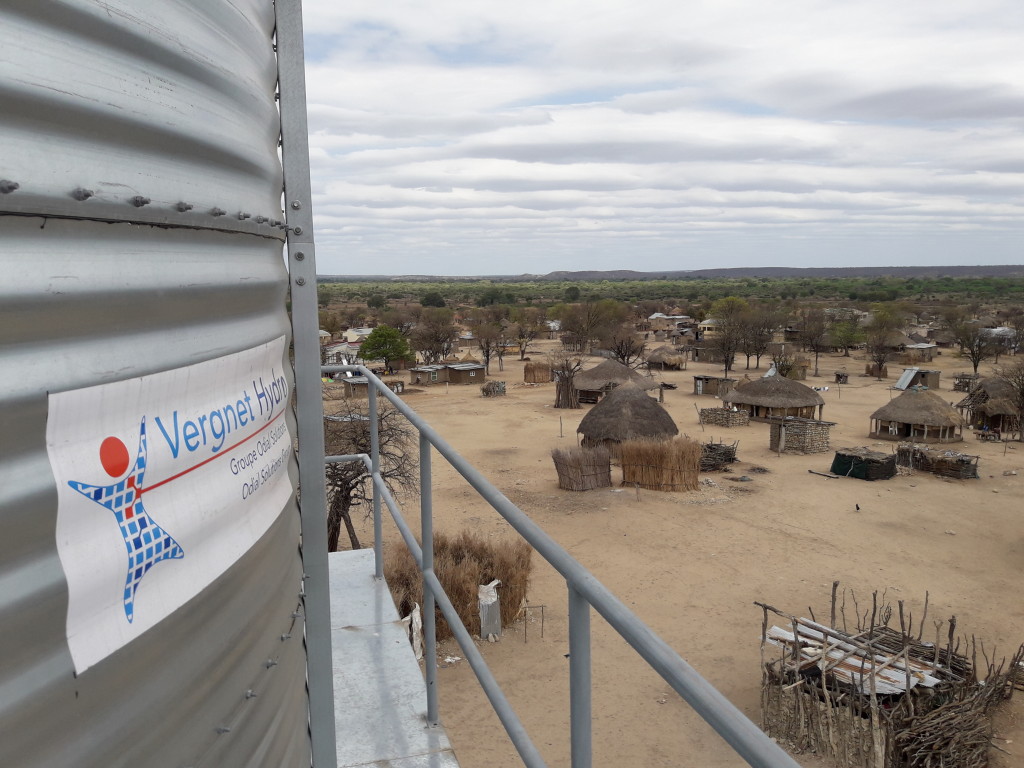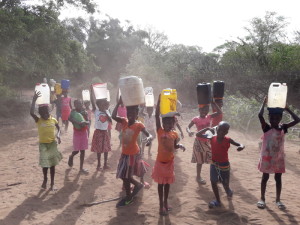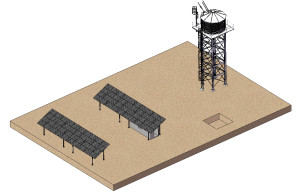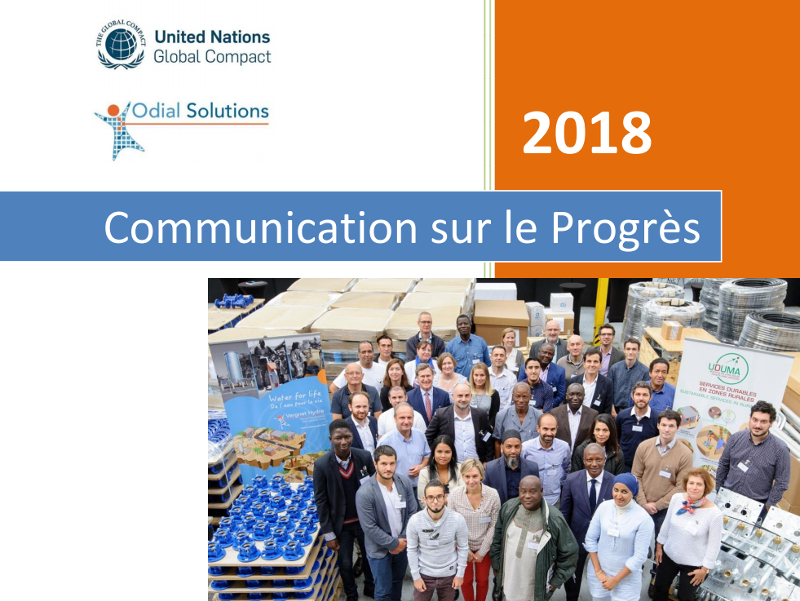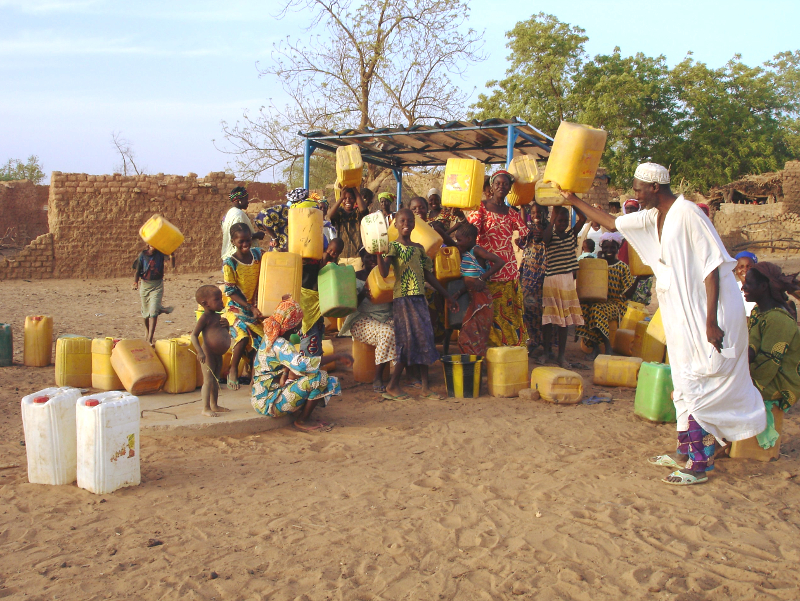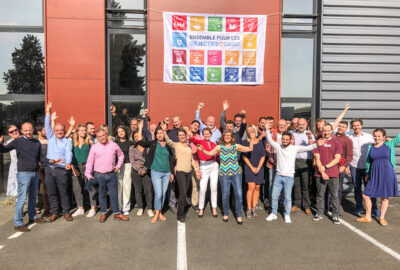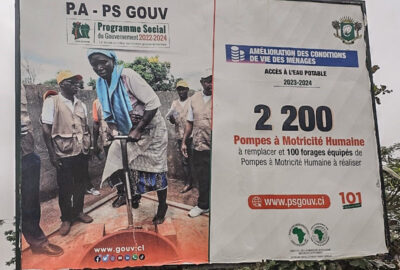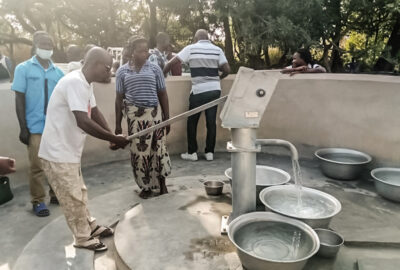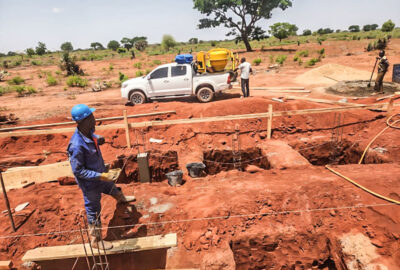Drinking water, environnement, Gestion, Management, Mozambique, Quality, Réservoirs, Services de l’eau, Water Supply Service, Water supply systems
Mozambique: An innovative drinking water service that combines desalination and solar energy
An innovative drinking water service for 7,200 rural people
The Belgian Cooperation Agency ENABEL (formerly named Coopération Technique Belge, CTB) has accorded the construction of a solar-powered drinking water supply for 6 villages (7,200 inhabitants) in the Gaza Province in Mozambique to the joint-venture of VERGNET HYDRO (subsidiary of ODIAL SOLUTIONS group, Orléans, France) and AFRIDEV MATI MOZAMBIQUE LDA (Maputo, Mozambique). The 6 sites should be operational by July 2018. “And, we are very happy to rely on the skills of the young and innovative SME MASCARA RENEWABLE WATER (Chartres, France) in order to achieve a fundamental dimension of this project: water desalination”, says enthusiastically Thierry BARBOTTE, Managing Director of VERGNET HYDRO.
While these villages are located at more than 200 km of the coastline, the ground water is brackish and doesn’t meet the World Health Organization (WHO) drinking water standards. Salt water consumption causes dehydration and kidney diseases. The brine damages the pump equipment and the pipes, corrodes them, leads to the spread of metal particles, which can cause cancer, cardiovascular diseases, etc.
A solar-powered desalination process that doesn’t need any battery
The MASCARA solar-powered desalination process is all the more innovative, cost-efficient and ecological as it doesn’t need any battery for the power storage. The energy produced by the 6 solar fields directly powers its 6 desalination units based on the reverse osmosis technology: the OSMOSUN®. “It is our first project in Africa and our first project dealing with brackish water, and not sea water. This project is marking a turning point in the history of our young company”, claims Marc VERGNET, MASCARA Chairman.
The 6 solar fields (from 80m2 to 160m2) are going to power 6 OSMOSUN® and 6 electric water pumps appropriate for these salt waters. They are going to pipe the drinking water to the 6 water towers, which will provide the gravity-fed small piped water systems. The residual water will be rejected in infiltration basins. “For 100 liters of pumped brackish water, 80 liters of drinking water will be supplied to the villagers”, specifies Romain DUBREUIL, Business Development Manager of VERGNET HYDRO.
The total power of these 320 photovoltaic panels will be about 88 kWc. Each site will contain a container in which there will be one OSMOSUN®, one remote management system (using GSM and internet) and one electrical cabinet for the pump and the desalination unit. “These premises will host the monitoring equipment the unit, knowing that keeping up an OSMOSUN® only requires to change its filter every now and then and to replace its membrane every 10 years”, adds Thomas CANDELORO, Project Manager of VERGNET HYDRO.
A drinking water service managed by a private company
VERGNET HYDRO leads the project and provides the equipment, MASCARA will set up the desalination units and AFRIDEV MATI MOZAMBIQUE LDA carries out the local construction works, and is in charge of local management. Indeed, the Mozambican SME is going to manage a communitarian water service (equipment maintenance and water sales) for these 6 piped networks and 15 other small piped water systems in this Province. “Supervising and guaranteeing an ongoing water service in which everyone pays for one’s own consumption is a wonderful challenge for our company. Besides, we are going to double our staff from 15 to 30 employees in 2018”, explains Dario AMADE, Managing Director of AFRIDEV MATI MOZAMBIQUE LDA.
Today, these Mozambican villagers often walk kilometers in order to reach a manual pump. “These small piped water systems will provide them with clean water, near their homes and through taps”, concludes Laurent DELUCCHI, Senior Engineer and leader of this project for ENABEL. “It is also worth noting that this project is the first experience of a 100% solar-powered water desalination, that is to say without any battery, in Mozambique.”


